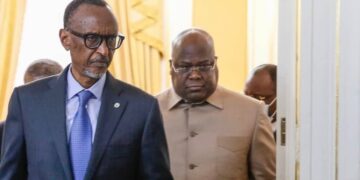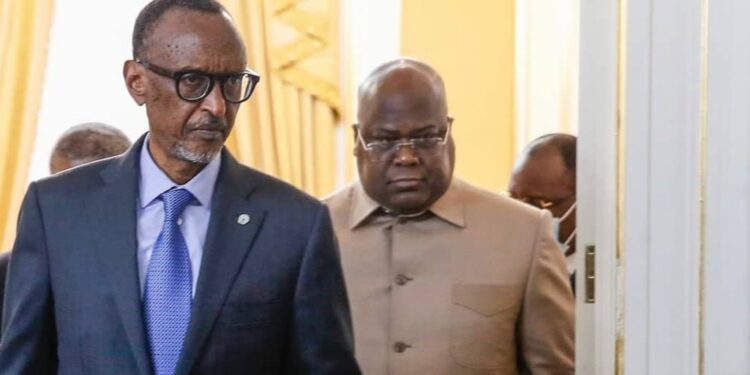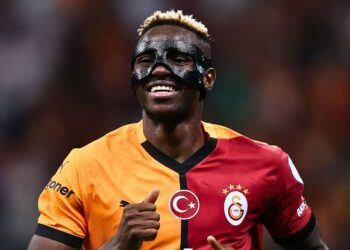By Enyichukwu Enemanna
The presidents of Rwanda and the Democratic Republic of Congo (DRC) have announced that they will not attend a tripartite meeting scheduled for Sunday in Angola, dashing hopes of ending the activities of the M23 rebel group, which has displaced more than 1.9 million people.
“The cancellation of this tripartite is caused by the refusal of the Rwandan delegation to take part,” the Congolese government said in a statement.
The Angolan meeting, if held, would have marked a rare face-to-face interaction between the leaders of the two East African nations. Prolonged negotiations have sought to ease tensions over the nearly three-year M23 insurgency.
The DRC has repeatedly accused Rwanda of supporting the rebel group with weapons and military training, allegations Kigali denies.
It had been expected that the meeting would result in a deal to end frosty relations that have further destabilized eastern Congo and raised fears of a broader conflict in Africa’s Great Lakes region.
The conflict has been compared to two devastating wars between 1996 and 2003, in which millions of people were killed.
On Saturday, the DRC accused Rwanda of demanding that it hold direct talks with the M23 rebels as a precondition for signing the peace deal, a condition Congo has rejected.
Rwanda’s Foreign Minister, Olivier Nduhungirehe, responded by stating that the meeting had been postponed without providing further details.
Under the proposed peace deal, Rwanda was expected to dismantle what it described as defensive measures in exchange for Congo eliminating the Hutu rebel group, the Democratic Forces for the Liberation of Rwanda (FDLR), which has targeted the Tutsi ethnic group in both countries.
The United Nations, France, and other observers have accused Rwanda of fueling the rebellion in North Kivu province by deploying troops and weapons to support M23.
The M23 rebel group claims to defend the interests of the Tutsi ethnic group in Congo, which has accused the DRC government of marginalization. Rwandan President Paul Kagame is a member of the Tutsi ethnic group.
Rwanda, which maintains it has taken decisive measures, has also accused Congo of recruiting FDLR militants to fight on its side.
In October, during a summit of leaders from French-speaking countries in France, Rwanda’s Foreign Minister Olivier Nduhungirehe accused his Congolese counterpart of refusing to sign an agreed deal to mitigate the activities of the M23 rebel group.
“We were ready to sign… but the Congolese minister refused. She first commented on the report and then later, after consultation, she came back and told us she was opposed to adopting the report,” Nduhungirehe said.
He told reporters that delegates to the talks, including Congo’s head of military intelligence, had agreed to a plan “for neutralizing a Hutu rebel group, the Democratic Forces for the Liberation of Rwanda (FDLR), and lifting Rwanda’s defense measures.”
The peace deal in France aimed for decisive action against the FDLR as a priority, to be followed by Rwanda easing its “defense measures.”
Nduhungirehe said the Congolese minister objected to these actions not being implemented simultaneously.


































